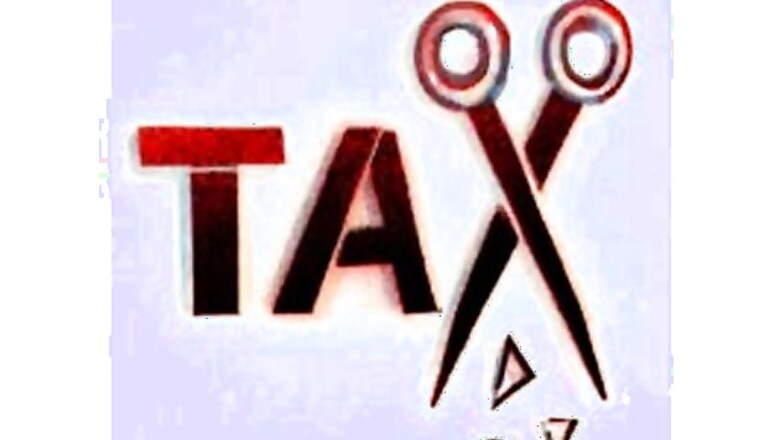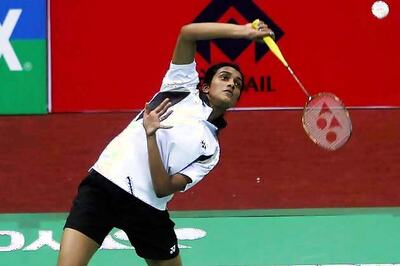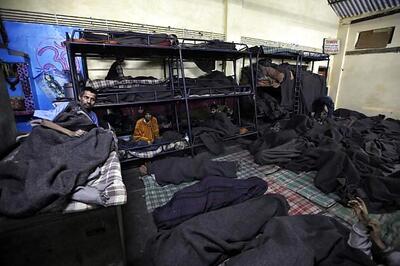
views
New Delhi: The BJP is seriously planning to promise sweeping several tax reforms in its Lok Sabha manifesto. It serves two purposes. Stop the exodus of middle class and upper middle class voters to the Aam Aadmi Party (AAP) and give an impression that the party is for a transparent taxation.
It hopes that the people would vote for the BJP if the party presents a detailed, feasible plan.
According to a report in 'The Hindu' one of the several tax reform proposals before the BJP Parliamentary Board recommends abolition of the more than 30 local, state and Central level taxes levied at present. The proposal recommends that from the present tax system only import duties should be retained.
The proposal received by former BJP president Nitin Gadkari from a Pune-based tax research outfit recommends replacing the present tax system with a single two per cent levy per receipt in bank accounts.
BJP's calculations show that the two per cent tax will yield Rs 40,00,000 crore. But some economist say the yield would be just Rs 14,00,000 crore. But, it will still be much higher than the Centre's total tax revenue, which was just Rs 10,38,037 crore in the current financial year.
What is the BJP's proposal:
Ramdev has proposed abolition of Income Tax. He says if Narendra Modi becomes the PM, it can happen. Former BJP president Nitin Gadkari wants to come out with a radical tax reforms proposal that will prevent the voters from supporting the AAP.
The BJP's vision document - 2025 which will be released before the Lok Sabha elections promises abolition of Income Tax, Sales Tax and Excise Taxes. It proposes a flat banking transaction tax.
It proposes abolition of Income Tax, Sales Tax and Excise Tax. Proposes a flat two per cent banking transaction tax. The complete modalities of the system is yet to be released by the BJP.
The BJP argues that even if the government charges just two per cent banking transaction, it will fetch over Rs 15 lakh crore annually instead of the combined current earnings of Rs 10 lakh crore.
For example: A person who earns Rs 10 Lakh a year, pays Rs 20, 000 tax every year. He/she won't be taxed for any other transaction.
A person, who earns Rs 10 crore, pays Rs 20 lakh a year, if there is no higher bracketing system.
For and against the idea:
Nitin Gadkari and Dr. Subramanian Swamy, who heads a sub-panel drafting the party's vision document on economic issues are backing it. But, former finance minister Yashwant Sinha and Arun Jaitley are not impressed by the idea. They want rationalisation of tax system. They feel that the flat tax will help the rich more. They argue that the rich and the poor can't be taxed at the same rate.
What is the gray area:
In India the banking transaction is just 20 per cent. Rest is in the form of cash. BJP hopes that the flat tax will encourage the people to do more and more bank transactions. It argues that it will gradually finish the black money.
What is flat tax:
A system that applies the same tax rate to every taxpayer regardless of income bracket is called flat tax. A flat tax applies the same tax rate to all taxpayers, with no deductions or exemptions allowed.
Supporters of a flat tax system propose that it would give taxpayers incentive to earn more because they would not be penalised with a higher tax bracket or conceal the real income. In addition, supporters argue that a flat tax system is fairer because it imposed the tax on all taxpayers regardless of income.
How it works in other countries:
In a progressive tax system, individuals who make more money are taxed at a higher rate. Many of the countries that have imposed a flat tax rate system on individuals and businesses, including Estonia, Lithuania and Latvia, have experienced economic growth since adopting flat tax rate policies.
In the United States, a progressive-rate tax system is used. In 2010, for example, people who earned up to $8,375 fell into the 10 per cent tax bracket; people who earned greater than $373,650 fell into the 35 per cent tax bracket.
Is it feasible:
Some experts feel that it is both feasible and desirable. FICCI President Siddarth Birla describes it as aspirational. Another expert argues that it has worked many countries and there should be no reason to worry that it may not work in India.
However, the experts caution that the flat tax should be thoroughly examined before replacing the old taxation system with it.
Tax experts and industrialists say that it will reduce corruption and save the people from harassment. Even Ernst and Young argues that it is feasible. Some say instead of flat tax, the pending Goods and Services Tax (GST) proposal should be accepted.
Countries with no Income Tax:
United Arab Emirates
Qatar
Oman
Kuwait
Cayman Islands
Bahrain
Bermuda
The Bahamas
Saudi Arabia
Brunei Darussalam



















Comments
0 comment